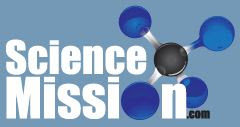Transcriptions
Rather than directions going one-way from DNA to RNA to proteins, the latest study shows that RNA itself modulates how DNA is transcribed--using a chemical process that is increasingly apparent to be vital to biology. The discovery has significant implications for our understanding of human disease and drug design.
The picture many of us remember learning in school is an orderly progression: DNA is transcribed into RNA, which then makes proteins that carry out the actual work of living cells. But it turns out there are a lot of wrinkles.
The team found that the molecules called messenger RNA, previously known as simple couriers that carry instructions from DNA to proteins, were actually making their own impacts on protein production. This is done by a reversible chemical reaction called methylation; the key breakthrough was showing that this methylation was reversible. It wasn't a one-time, one-way transaction; it could be erased and reversed.
The team also identified and characterized a number of "reader" proteins that recognize methylated mRNA and impact target mRNA stability and translation.
But as the lab worked with mice to understand the mechanisms, they began to see that messenger RNA methylation could not fully explain everything they observed.
This was mirrored in other experiments. "The data coming out of the community was saying there's something else out there, something extremely important that we're missing--that critically impacts many early development events, as well as human diseases such as cancer," the author said.
The team discovered that a group of RNAs called chromosome-associated regulatory RNAs, or carRNAs, was using the same methylation process, but these RNAs do not code proteins and are not directly involved in protein translation. Instead, they controlled how DNA itself was stored and transcribed.
"This has major implications in basic biology," the author said. "It directly affects gene transcriptions, and not just a few of them. It could induce global chromatin change and affects transcription of 6,000 genes in the cell line we studied."
The author sees major implications in biology, especially in human health--everything from identifying the genetic basis of disease to better treating patients.
"There are several biotech companies actively developing small molecule inhibitors of RNA methylation, but right now, even if we successfully develop therapies, we don't have a full mechanical picture for what's going on," the author said. "This provides an enormous opportunity to help guide disease indication for testing inhibitors and suggest new opportunities for pharmaceuticals."
Their breakthrough is only the beginning, the author said. "I believe this represents a conceptual change," the author said. "Barriers like these are hard to crack, but once you do, everything flows from there."
